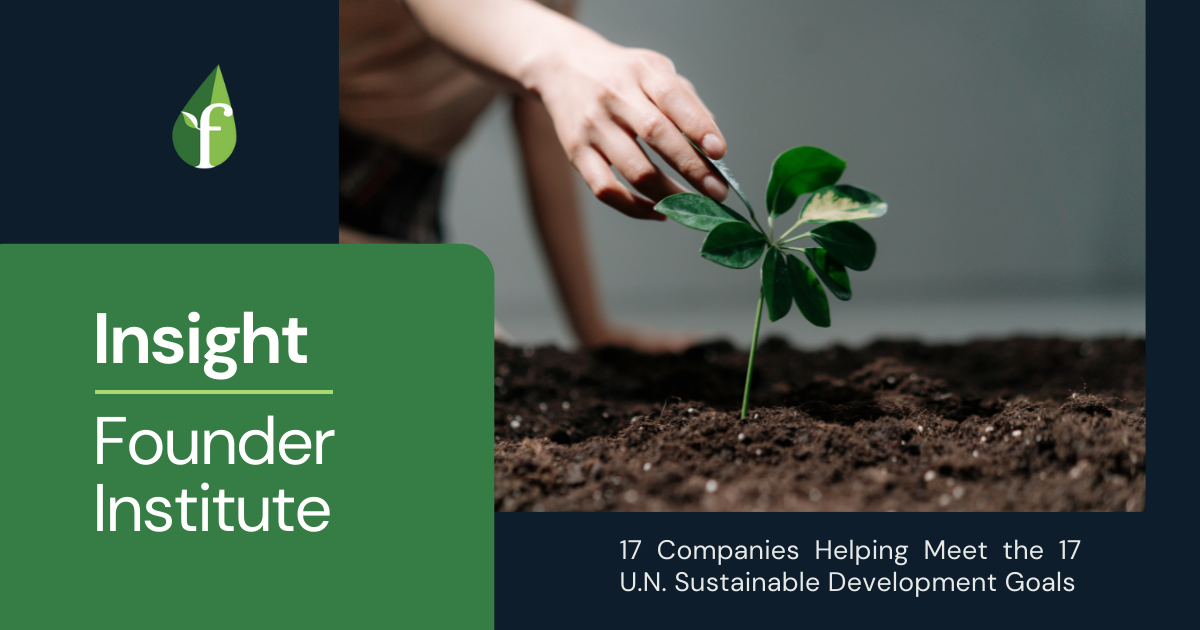
Last week in part nine of this series on Making Impact Work for Startups, we discussed how to assess your startup's ESG and impact KPI progress—this post is the final installment, part ten. To see the entire playbook with a full background on using Founder Institute's For Progress impact metrics framework, we recommend you start at part one.
If you're an impact startup founder, enter your 1-minute pitch video at PitchForProgress.com for a chance to pitch live to impact investors in the July online Demo Day event + win prizes!
Background
iKPIs are hard work, and it is important to put some effort into celebrating, as well as doing the ongoing legwork. Keeping impact too heavy a topic could lead toward 'impact fatigue’ among team members (think ‘compassion fatigue' for business).
Holding a public event to celebrate your first iKPI milestone, or posting celebratory team congrats to about a strong quarterly iKPI result on social media, are great ways to raise both morale and your impact profile. Other than the brand benefits, you are essentially offering potential impact partners proof that your strategies work, which will encourage future collaborations towards achieving the SDGs.
Action Points
Within your tracking process, set regular targets and milestones for each iKPI. Then, celebrate those achievements when you hit them! Remember all the human elements here - SDG progress is about helping the planet and the people who live on it. Take these opportunities to put the spotlight back on the people or causes your initiative is looking to positively impact. Invite people who have benefited from your efforts to talk about the ongoing efforts with your community and the public. Help to make impact more tangible to everyone.
You could also decide to hold a public event or seminar on how you achieved that milestone, your missteps along the way, and what other For Progress founders can learn from your impact journey.
Take the opportunity to publicly or internally acknowledge the team members who are giving outsized contributions towards meeting your impact initiatives.
Finally, encourage a domino effect by using these events to increase the visibility of the iKPIs, encourage other organizations to jump on board, and help bring impact initiatives to the heart of other businesses.
Case Study Example: GoFar
- GOFAR (FI Sydney) is an in-vehicle IoT device that teaches drivers how to drive more safely and efficiently.
- GOFAR has always focused on a social mission to cut down vehicle emissions and crashes - and in 2020, the company was recognized with the Technology Prize in the prestigious Australian Road Safety Awards, for their impact on cutting crash risk amongst young drivers. The team celebrated the achievement, sharing about it on social media.
- The efficacy in their impact was proven across a 4 million km randomized control study - the biggest ever of its kind conducted in Australia. The study showed drivers using GOFAR had 38% less high-range speeding events per 1000km, and 42% less harsh-braking events.
- Celebrating wins is so important, because even the small wins reaffirm the team’s focus and efforts towards meeting iKPIs, and that the collective work to create social impact is indeed making a difference to move the needle in the right direction.
If you're an impact startup founder, enter your 1-minute pitch video at PitchForProgress.com for a chance to pitch live to impact investors in the July online Demo Day event + win prizes!
Making Impact Work for Startups: the iKPI Playbook
In 2015, the UN released 17 Sustainable Development Goals (SDGs), an urgent call for governments, businesses, and organizations to align efforts towards “a shared blueprint for peace and prosperity for people and the planet.” As business leaders, it is past time to assume our share of this indispensable responsibility. We cannot rely solely on governments and large organizations to act without our support.
The biggest problems of humanity can and must be solved by entrepreneurs, who are currently the most effective catalysts for change in the world. We are therefore calling on entrepreneurs to form “Impact Companies” that address SDGs such as eradicating extreme poverty, ending world hunger, and achieving gender equality. To be successful, we believe entrepreneurs should weave sustainability into a concept we all understand - KPIs. That’s why we’ve come up with “impact” KPIs, or iKPIs.
The Founder Institute has put together a free Progress Planner tool to search and generate iKPIs, as well as a playbook for startup founders to work towards becoming an Impact Company through realistic, trackable steps. To help guide entrepreneurs, we will provide supporting resources, including practical iKPI recommendations, real-life applications and metrics, and example case studies, through 10 key steps - this post is #8 in that 10-part series.
The Founder Institute believes we cannot rely solely on governments and big organizations to fix the world's problems - the time is now for entrepreneurs to also do their part.
Use our free For Progress planner to search iKPIs (Impact Key Performance Indicators) by keyword, or browse iKPIs by the 17 UN Sustainable Development Goals. Don't be intimidated by seemingly impossible impact metrics - instead, find specific SDGs that your business can positively influence.
Try the Progress Planner tool at FI.co/Progress, or learn more startup impact initiatives across the FI global network at FI.co/Impact.



